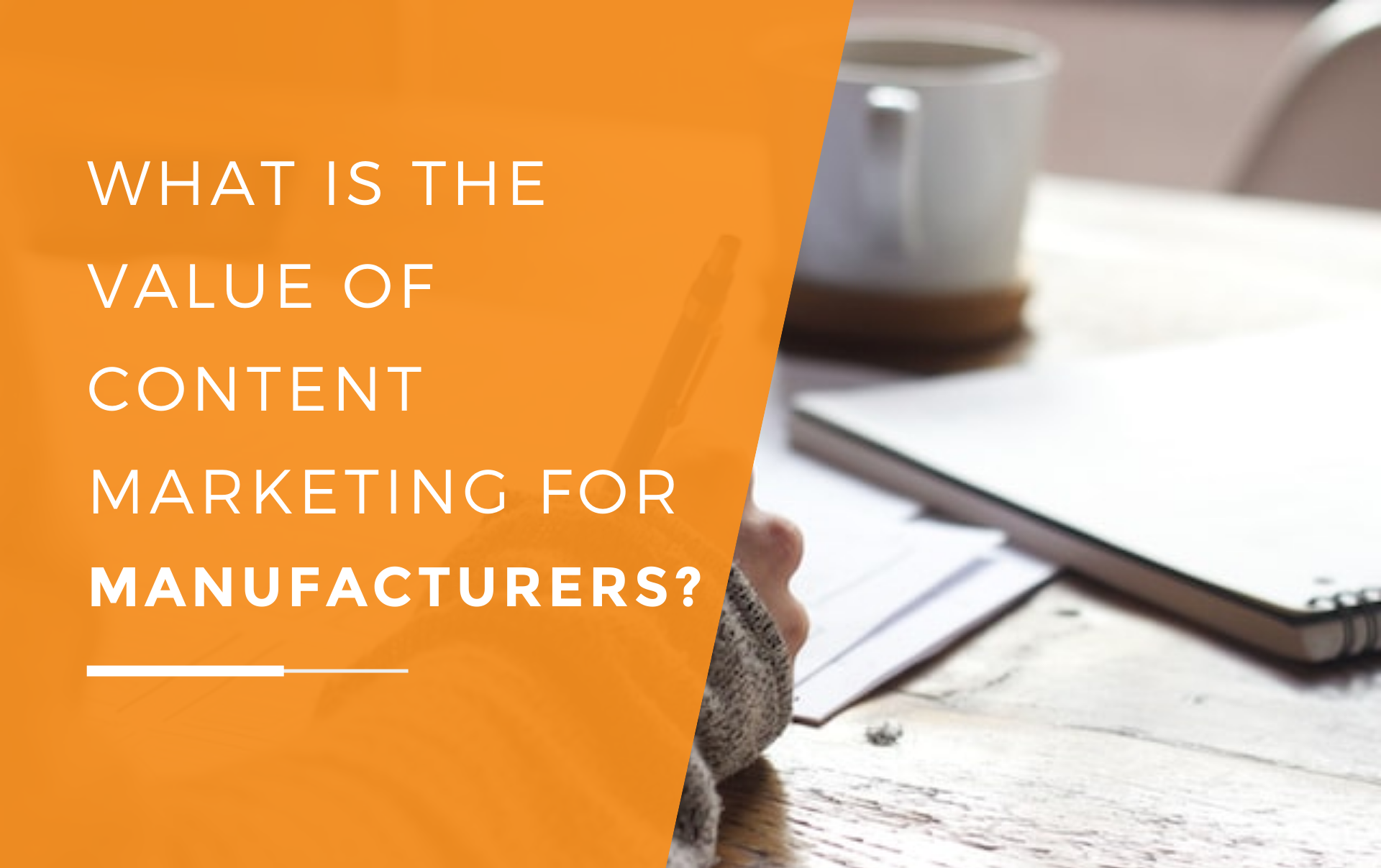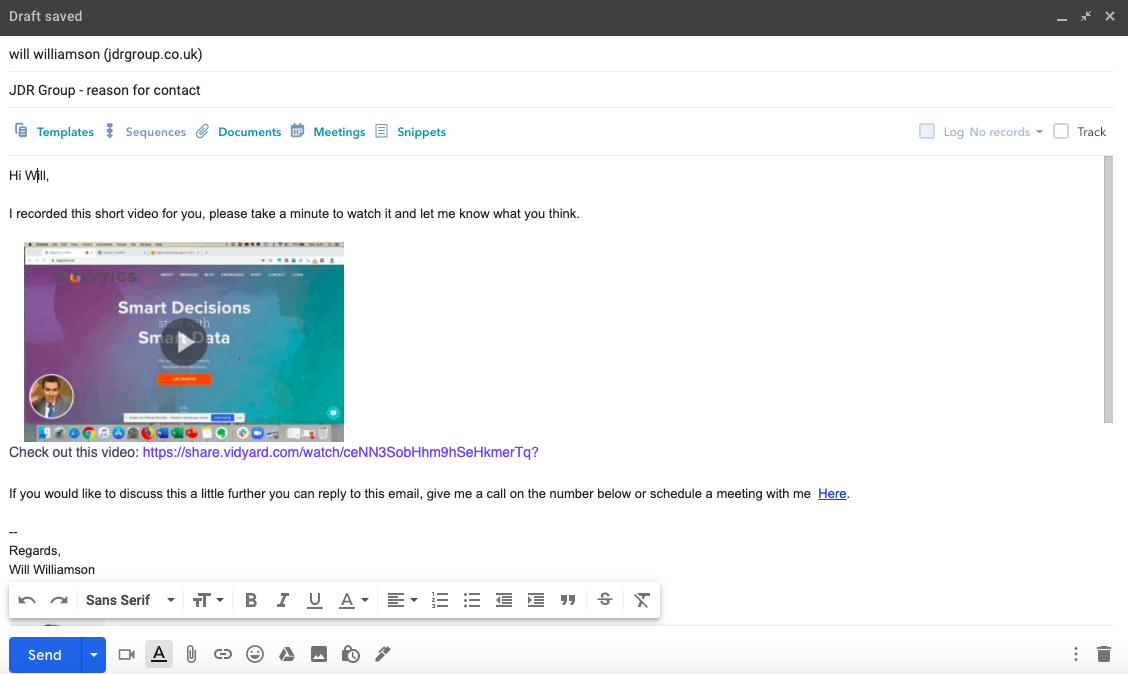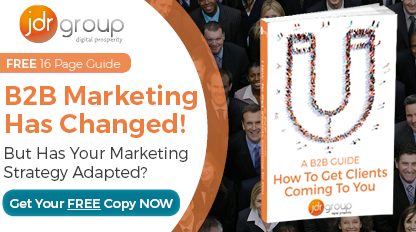Search Engine Optimisation: The Cure For Your Poor Performing Website
by Daniel Baker on 07-Feb-2018 14:16:12

Search Engine Optimisation (SEO) is the process of taking your website and making changes to it that will help make it a perfect candidate for particular search terms. A search term refers to the keyword a person uses when searching on one of the many various search engines. SEO helps your website become a trusted result for your chosen search terms but in order to achieve this, your website needs to become a source of relevant, useful and trustworthy information.
The way you achieve this involves many aspects. From On-Page SEO like URL structure, keywords and Alt-text, to Off-Page SEO like backlinks, anchor text and trust-flow. In this article, I will walk you through some basic methods for starting your SEO. Let's start with On-Page SEO.
On-Page SEO
On-Page SEO is everything that you do to the individual pages on the website. This kind of optimisation is unique to the page and will improve the chances of that particular page coming up as a search result. People will often choose a selection of keywords that relate to the pages of their website as this is where you’re strongest, most relevant content will be found. These SEO tactics are often the fastest and simpler of the two.
Page Titles
Page titles are a very important but very simple step in the On-Page SEO process. Your page titles give Google a clear indicator as to what your content is about. Every page and blog post you have on your website should have a unique title that includes relevant keywords. Doing this means every page will have its own target search terms and your pages won't be competing for the same result.
URL Structures
Having search engine friendly URLs will help Google spiders (also known as Crawlers) provide a higher ranking for your page. It's important to use keywords in these URLs and the location of these keywords does matter. The earlier in the URL the keyword is, the more impact it will have. For example, www.jdrgroup.co.uk/blog/articles/seo/the-cure-for-yourpoor-performing-website is not going to perform as well as the URL www.jdrgroup.co.uk/the-cure-for-your-website. Having an SEO friendly URL will also increase the trust of your website visitors. As the general public become more knowledgeable about the internet and viruses, they will begin to suspect a URL that doesn't tell you exactly what the web page is about.
Body Tags
Body tags are used to mark the headers and subheadings of your website pages. Typically, a H1 will be used for the main header with H2, H3 & H4 being used for subheadings and sub-subheadings. The reason these are useful is not only do they allow your visitors to clearly understand what they are reading but it also lets Google know exactly which bits of your content are relevant. They are also a great way of adding additional keywords to your website.
Meta Descriptions
Meta descriptions are often forgotten about when building a website but it is an important step in being found on search engines. Your meta descriptions will contain important, relevant keywords and even more importantly, will be the text that is displayed on your ever-so-important search result. A meta description should be short and contain a relevant keyword to the page.
Image SEO
Images can add a lot to a website but if they aren't optimised they might not add performance to your website. All your images should be resized to minimise the potential increase in loading times they might add. Something Google will rank your website on is accessibility so you should always ensure you have Alt-text attached to your images. Failing to do this will drop your ranking harshly.
Internal Links
Internal links are usually disregarded as only improving navigation on your website but they actually help SEO as well. Internal links allow Google crawlers to navigate your website properly and find additional pages and content they might have otherwise missed. With the new introduction of 'Pillar Pages' internal links are more important than ever.
Off-Page SEO
Once you've sorted out your On-Page SEO, you may start feeling like you've done all you can, but this is far from true. On-Page SEO is important and can strongly influence your website's success but that's not where it ends. Off-Page SEO can be just as important and will often be the extra push your website needs. Let's take a look at how Off-Page SEO can be used in a way that will boost your website in ways On-Page could not.
Customer Service
This may seem obvious but the way you interact with your customers, both online and in the real world, will dramatically influence the success of your website. The experience you give your customers in person will make it online faster than you can imagine. All it takes is someone to film you cutting corners or a staff member being rude and your online brand could be destroyed. Social media has allowed news to travel extremely fast and within a day millions of people might have seen your mistake. If this were to occur, all the On-Page SEO in the world wouldn't make a difference.
Focus On Searchers Intent
When selling a product or service online it's easy to become excited about the chance you're giving your customers to experience your amazing product. Because of this, people end up marketing as though you're doing your customers a favour. What you should really be doing though, is marketing to what people actually want. No one specifically wants your product because it's likely they don't know it exists. Look for similar products and see what keywords they are using and at the search terms people are using around those products. This could give you a good starting point.
Social Media Presence
Many business owners have social media accounts for their business, but when asked why they really don't have an answer beyond 'It's just expected'. This is a dangerous mentality to have towards social media. It's one of the strongest tools you have as a business but that's only if you're actually using it. If someone tweets you or sends you a Facebook message, you have to reply. Ignoring them can cost you a sale and cause you a bad review and then we get back into bad customer service territory.
Make sure you are always monitoring your social media and regularly posting relevant and engaging content that uses keywords. Google crawlers will look through your social media profiles when ranking you so you should continue your optimisation here. This is called SMO (Social Media Optimisation).
Building Connections
The internet has created hundreds of ways to become famous. YouTube stars, Twitch streamers, Instagram celebrities. All these platforms have allowed people to gather millions of followers and thus has given them a lot of influence. Getting someone like this to endorse your product could help give you a rise in popularity, even if it's just a temporary boost.
Varying Content
It is important to not become repetitive when creating content. If you produce a weekly blog article and an infographic once a month, your leads will become bored of your content and assume it's just the same as all the others they've read. Mix your content up by uploading videos, podcasts, PDFs, guides and more. Give your leads loads of useful, relevant content of different kinds. This way people will never know what to expect and will look forward to seeing what you have in store for them.
Conclusion
Now that we've seen the difference between On-Page and Off-Page SEO, and we've looked at what you can do to improve them both, you should have a lot to work with. You can see where your website needs to improve both On-Page and Off-Page. Making any of these changes, big or small, will help increase your website traffic.
If you're struggling to reach the website traffic numbers you know you deserve, then contact the JDR Group and see how we can help. As a Platinum Hubspot partner you can trust that we're able to introduce new life to your website. Call us today on 01332 343281.
- Inbound Marketing (SEO, PPC, Social Media, Video) (831)
- Strategy (368)
- Sales & CRM (197)
- Marketing Automation & Email Marketing (190)
- Business Growth (168)
- Website Design (162)
- Hubspot (141)
- Lead Generation (117)
- Google Adwords (100)
- Content Marketing (94)
- Conversion (53)
- Case Studies (49)
- News (47)
- Ecommerce (39)
- Webinars (34)
- SEO (26)
- AI (20)
- Events (19)
- LinkedIn Advertising (17)
- Video (17)
- Video Selling (15)
- Software training (13)
- Niche business marketing (11)
- The Digital Prosperity Podcast (10)
- HubSpot Case Studies (7)
- Facebook Advertising (6)
- Web Design Case Studies (1)
- February 2026 (2)
- January 2026 (12)
- December 2025 (15)
- November 2025 (6)
- October 2025 (17)
- September 2025 (16)
- August 2025 (14)
- July 2025 (14)
- June 2025 (5)
- May 2025 (19)
- April 2025 (15)
- March 2025 (13)
- February 2025 (13)
- January 2025 (8)
- December 2024 (2)
- November 2024 (4)
- October 2024 (21)
- September 2024 (4)
- August 2024 (8)
- July 2024 (14)
- June 2024 (16)
- May 2024 (25)
- April 2024 (15)
- March 2024 (18)
- February 2024 (5)
- January 2024 (10)
- December 2023 (6)
- November 2023 (10)
- October 2023 (13)
- September 2023 (12)
- August 2023 (14)
- July 2023 (13)
- June 2023 (14)
- May 2023 (15)
- April 2023 (13)
- March 2023 (14)
- February 2023 (13)
- January 2023 (15)
- December 2022 (13)
- November 2022 (6)
- October 2022 (8)
- September 2022 (22)
- August 2022 (15)
- July 2022 (13)
- June 2022 (16)
- May 2022 (14)
- April 2022 (16)
- March 2022 (17)
- February 2022 (11)
- January 2022 (8)
- December 2021 (6)
- November 2021 (7)
- October 2021 (11)
- September 2021 (10)
- August 2021 (7)
- July 2021 (7)
- June 2021 (4)
- May 2021 (4)
- April 2021 (1)
- March 2021 (3)
- February 2021 (5)
- January 2021 (4)
- December 2020 (7)
- November 2020 (6)
- October 2020 (5)
- September 2020 (9)
- August 2020 (18)
- July 2020 (17)
- June 2020 (17)
- May 2020 (10)
- April 2020 (21)
- March 2020 (24)
- February 2020 (21)
- January 2020 (12)
- December 2019 (23)
- November 2019 (12)
- October 2019 (14)
- September 2019 (16)
- August 2019 (15)
- July 2019 (13)
- June 2019 (6)
- May 2019 (8)
- April 2019 (4)
- March 2019 (2)
- February 2019 (2)
- January 2019 (2)
- December 2018 (3)
- November 2018 (24)
- September 2018 (11)
- August 2018 (9)
- June 2018 (3)
- May 2018 (6)
- April 2018 (14)
- March 2018 (12)
- February 2018 (16)
- January 2018 (15)
- December 2017 (15)
- November 2017 (18)
- October 2017 (23)
- September 2017 (19)
- August 2017 (28)
- July 2017 (27)
- June 2017 (25)
- May 2017 (18)
- April 2017 (17)
- March 2017 (16)
- February 2017 (17)
- January 2017 (14)
- December 2016 (21)
- November 2016 (27)
- October 2016 (25)
- September 2016 (16)
- August 2016 (20)
- July 2016 (19)
- June 2016 (14)
- May 2016 (20)
- April 2016 (24)
- March 2016 (22)
- February 2016 (28)
- January 2016 (27)
- December 2015 (28)
- November 2015 (19)
- October 2015 (9)
- September 2015 (12)
- August 2015 (5)
- July 2015 (1)
- June 2015 (10)
- May 2015 (3)
- April 2015 (11)
- March 2015 (14)
- February 2015 (15)
- January 2015 (12)
- December 2014 (2)
- November 2014 (23)
- October 2014 (2)
- September 2014 (2)
- August 2014 (2)
- July 2014 (2)
- June 2014 (7)
- May 2014 (14)
- April 2014 (14)
- March 2014 (7)
- February 2014 (2)
- January 2014 (7)
- December 2013 (9)
- November 2013 (14)
- October 2013 (17)
- September 2013 (3)
- August 2013 (6)
- July 2013 (8)
- June 2013 (4)
- May 2013 (3)
- April 2013 (6)
- March 2013 (6)
- February 2013 (7)
- January 2013 (5)
- December 2012 (3)
- November 2012 (2)
- September 2012 (1)
Subscribe by email
You May Also Like
These Related Blogs

4 Ways To Ensure Your Technical SEO Is On Point!
Technical SEO saw a dip in the past as new exciting methods came to the forefront of search engine marketing but in recent years it's been making a ma …

What Is The Value Of Content Marketing For Manufacturers?
Fact: business decision makers are spending more time online and content consumption is set to keep increasing. Online content is one of the most cons …

11 Video Selling Examples - How One-To-One Video Can Be Used Throughout The Sales Process
At JDR, we have been using one-to-one video for several years - and in the increasingly virtual post-COVID world, we have been using it more and more. …



